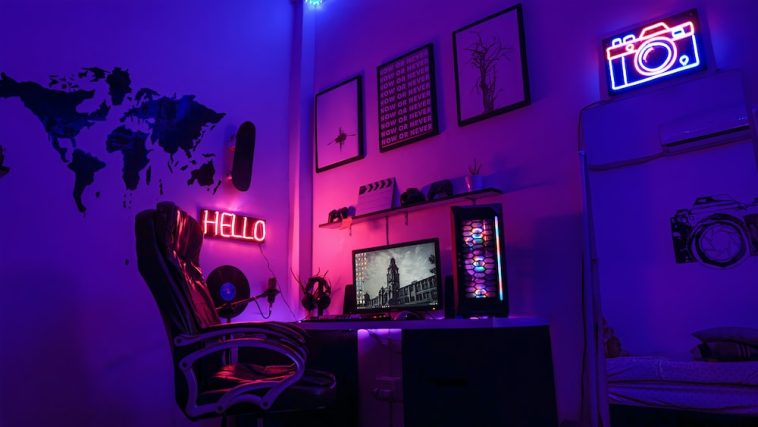Introduction.
Gaming on a laptop is super convenient. You can take it anywhere, it saves space, and let’s be honest—it’s pretty awesome to dive into your favourite games while curled up on the couch. But there’s one big problem: heat.
Gaming is demanding. Your laptop’s CPU and GPU work overtime, and that can quickly lead to overheating.
This doesn’t just make your laptop uncomfortably hot—it can slow down performance, shorten the life of your hardware, and even cause sudden shutdowns. If you’ve ever felt your laptop getting too hot during a gaming session, you’re not alone.
So, how do you keep your laptop cool while gaming? Let’s go step by step and look at some practical ways to prevent overheating and keep things running smoothly.
Why Does Your Laptop Overheat While Gaming?
Before we get into the solutions, it helps to understand why gaming heats up your laptop in the first place.
- High Performance = High Heat
Games require a lot of processing power. Your laptop’s CPU and GPU (graphics card) generate heat as they handle all those high-resolution textures, fast-paced movements, and complex calculations. - Compact Design
Unlike desktops, laptops are small and don’t have as much space for airflow. This makes it harder for heat to escape, especially when the internal cooling system is working overtime. - Poor Ventilation
If your laptop is placed on a soft surface like a bed or couch, the vents might get blocked. This restricts airflow and traps heat inside. - Dust Buildup
Over time, dust can accumulate inside your laptop, clogging fans and vents. This reduces the efficiency of your cooling system.
Tips to Keep Your Laptop Cool While Gaming
1. Use a Cooling Pad
One of the easiest ways to reduce heat is by using a cooling pad. These are external devices that have built-in fans to improve airflow around your laptop.
A good cooling pad can drop temperatures by a few degrees, which can make a noticeable difference during long gaming sessions. Look for one with adjustable fan speeds and a design that fits your laptop’s size.
2. Keep Your Laptop on a Hard, Flat Surface
Soft surfaces like beds, pillows, or even your lap can block the vents on the bottom of your laptop. To improve airflow, place your laptop on a hard, flat surface like a desk or table.
You can also use a laptop stand to lift it off the surface and allow air to circulate more freely.
3. Clean the Fans and Vents
Dust is one of the biggest enemies of laptop cooling. It clogs up the fans and vents, reducing their ability to move heat out of the system.
To fix this, clean your laptop regularly. Use a can of compressed air to blow out dust from the vents and fans. If you’re comfortable opening up your laptop, you can clean the inside more thoroughly.
4. Manage In-Game Settings
Not every game needs to run on ultra settings. High graphics settings can put a lot of strain on your hardware, causing it to heat up quickly.
Try lowering the graphics settings in your game. Reducing options like shadows, texture quality, and resolution can significantly lower the heat generated without drastically affecting gameplay.
5. Limit Background Processes
When gaming, close any unnecessary apps and processes running in the background. These programs can use up CPU and memory resources, adding to the heat load.
To do this:
- On Windows, open Task Manager (Ctrl + Shift + Esc) and end any unnecessary tasks.
- On Mac, use Activity Monitor to do the same.
6. Update Your Drivers and Software
Outdated drivers or system software can cause your laptop to work harder than it needs to, leading to overheating.
Make sure your graphics card drivers and operating system are up to date. Manufacturers often release updates that improve performance and optimize cooling.
7. Use Software to Monitor Temperatures
There are plenty of free tools that can help you monitor your laptop’s temperature. These tools give you real-time data on your CPU and GPU temperatures, so you know if things are getting too hot.
Some popular options include:
- HWMonitor
- Core Temp
- MSI Afterburner
If you notice temperatures consistently above 85°C (185°F), it’s time to take action.
8. Improve Room Temperature
Sometimes, the room itself is too hot, and that adds to the problem. Try to game in a cool, well-ventilated room. If possible, use a fan or air conditioner to keep the ambient temperature low.
9. Consider Undervolting
Undervolting is a way to reduce the voltage supplied to your CPU and GPU without affecting performance too much. This can significantly reduce heat output.
While it might sound complicated, there are user-friendly tools like Intel XTU or Throttlestop that can help you undervolt safely. Just remember to do your research and proceed with caution.
10. Upgrade Thermal Paste
Thermal paste is a compound applied between your CPU/GPU and the heatsink to help transfer heat. Over time, it can dry out and lose its effectiveness.
If you’re comfortable opening up your laptop, consider replacing the thermal paste with a high-quality option. This can lower temperatures by several degrees.
FAQs
1. Is it normal for a laptop to get hot while gaming?
Yes, it’s normal for laptops to heat up while gaming. However, if it’s getting too hot to touch or causing performance issues, you need to take steps to cool it down.
2. What temperature is too hot for a gaming laptop?
Generally, if your CPU or GPU temperature is consistently above 85°C (185°F), it’s considered too hot. Ideally, you want to keep it below 80°C (176°F) for optimal performance and longevity.
3. Can overheating damage my laptop?
Yes, prolonged overheating can damage internal components, reduce performance, and shorten the lifespan of your laptop.
4. Will using a cooling pad void my warranty?
No, using a cooling pad won’t void your warranty. It’s a simple, external accessory that doesn’t interfere with the internal components of your laptop.
Final Thoughts
Keeping your laptop cool while gaming isn’t just about comfort—it’s about protecting your investment and getting the best performance possible.
With the right setup and a few simple adjustments, you can game for hours without worrying about overheating.
What cooling tricks have worked best for you?




GIPHY App Key not set. Please check settings